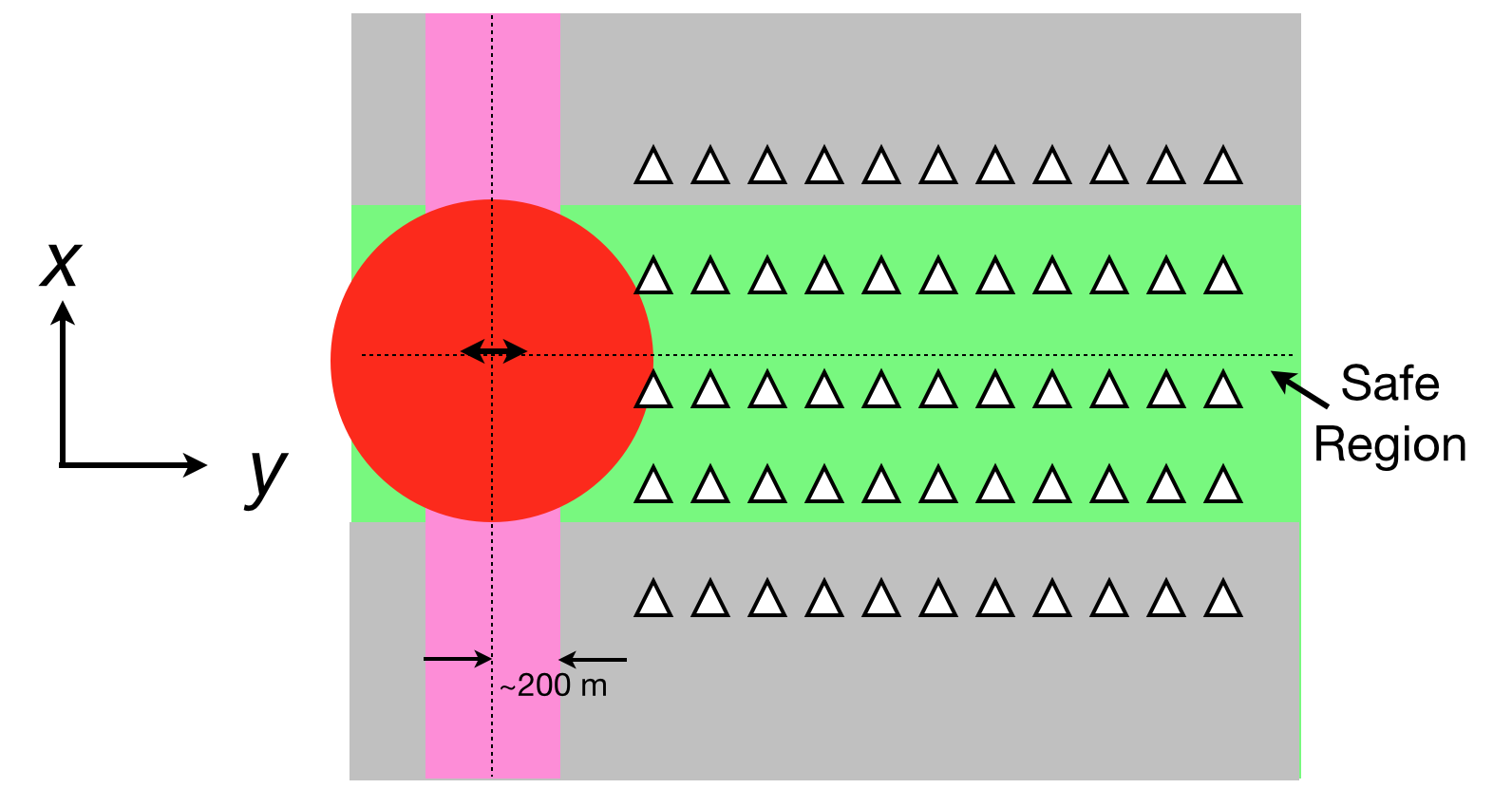Warning You're reading an old version (v0.1) of this documentation.
If you want up-to-date information, please have a look at master.
Numerical Issues for Along-Strike Source-Receiver Offset
For 2.5D EM modeling, MARE2DEM uses a Fourier transformation of the governing Maxwell’s equations along the model strike (x direction). This poses some potential numerical issues for receivers positioned too close to transmitter in the (y,z) plane, even if the x offset is otherwise large. The figure below highlights these issues graphically.

Fig. 39 Safe locations for receiver relative to the transmitter in 2.5D modeling. Due to the source singularity, receivers in the red region that are close the transmitter in any direction might not be accurately modeled. For marine CSEM at least 100 m is generally safe. Receivers in the pink region are close to the transmitter in the wavenumber domain due to the 2.5 Fourier transformation along x. Receivers in the grey regions have a large \(| x_{tx} - x_{rx} |\) that may require an increased range and density of the wavenumber samples to get a numerically accurate Fourier transformation due to severe oscillations in the transform kernel at large offsets. The precise distances for these potentially problematic regions depends on the specific conductivity model, frequency and kx wavenumbers sampling used; if you desire to model receivers close to the source or far downstrike, we recommend you verify the MARE2DEM responses for a relevant layered model with solutions from a numerically accurate 1D EM codes for your specific problem.